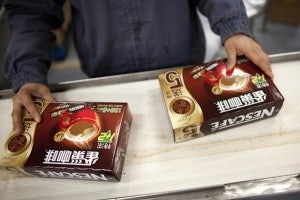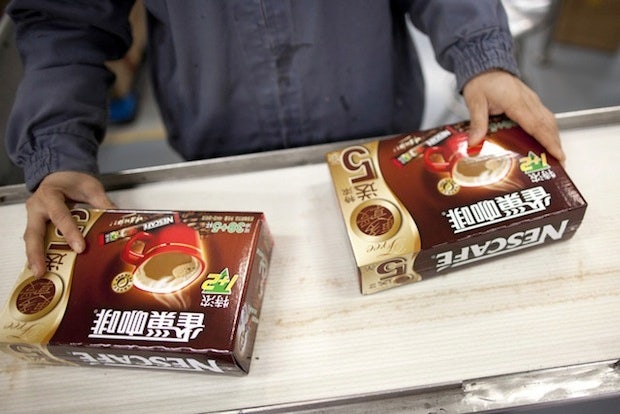“Coffee Has Huge Growth Potential"#

Nelson Ching/Bloomberg
Though annual per capita consumption sits at less than five cups, coffee is becoming a daily addiction rather than an occasional splurge for a growing slice of the Chinese population. With coffee consumption in China rising at an estimated 30-40 percent annually, over the global average of 2-3 percent, major coffee chains like
Starbucks#
— which currently has over 570 stores in 48 Chinese cities — aren’t the only ones bullish about the market.
Following other recent efforts by the likes of Italian heavyweight
illy#
, which opened its first Galleria illy in mainland China last October at Beijing’s Parkview Green mall (芳草地购物中心),
Nestle#
has announced plans to invest at least 100 million yuan (US$16 million) in a coffee center in southwestern Yunnan province (the epicenter of China's nascent coffee-growing industry). The center's main goal will be boosting consumption in what could become one of the world's top five coffee-consuming countries within just a few years.
The coffee industry has room to grow on the mainland because consumption is lower than other parts of the region, Heiko Schipper, managing director of Nestle’s Greater China food and beverage division, said in an interview in Shanghai yesterday.
The Vevey, Switzerland-based foodmaker, which sells products from Nescafe coffee to Maggi food seasonings in China, is expanding its food and beverage business as rising incomes drive consumption in the world’s second-largest economy. The new center in the southwestern Yunnan province will train 5,000 farmers, agronomists and coffee business professionals a year, and will include a coffee testing laboratory as well as a consumer education facility.
“Coffee has huge growth potential, that’s because of its low per capita consumption,” Schipper said. “Total consumption is very low, only four cups per capita in China, and if you look at Hong Kong and Taiwan, it’s between 100 to 150 cups per capita.”
Despite its much-publicized investment, the easy days for Nestle are long-gone, as the Chinese consumer has come a long way since their first exposure with the beverage, which usually came by way of cheap sachets of Nescafe. Along with chains like Starbucks, caffeine lovers in many urban centers now have access to everything from Dunkin' Donuts and Costa Coffee to independent java-slingers like Beijing's Rickshaw Roasters and Ocean Grounds or Hong Kong's Rabbithole.
For these newcomers and conglomerates alike, although they know they're getting in on what is, essentially, the ground floor of a young industry, the vastness of China's middle class is motivation enough to keep going. As Ellen Zhang of Esquires put it last year, ”In China we’ve got about 300 million middle class and they all love coffee and wine – imagine that.”
